
Automation and Robotics Course Details - Fees, Subjects, Syllabus, Duration, Eligibility, Career Scope
Degrees offered: B.E /B.Tech, M.E /M.Tech., Diploma, M.Sc., Ph.D
What is Automation and Robotics
Automation and Robotics is an interdisciplinary field that designs, develops, and manages intelligent machines and automated systems. It combines concepts from engineering, computer science, and artificial intelligence to create technologies that can perform tasks automatically, improving efficiency, speed, and accuracy across various industries.
The course curriculum includes robotics design, sensors and actuators, automation systems, artificial intelligence, programming, and control engineering. These courses are available at undergraduate, postgraduate, and diploma levels, including B.Tech, BCA, and B.Voc programmes. Students learn both theoretical concepts and practical applications used in real-world automation processes.
More than 160 colleges and universities in India offer courses in Automation and Robotics. The growing demand for automation in manufacturing, healthcare, logistics, and IT sectors is creating strong career opportunities for skilled professionals. Graduates can work as automation engineers, robotics programmers, or system designers in national and international industries.
Automation and Robotics: Highlights
Automation and Robotics is a rapidly growing field that combines technology, engineering, and innovation to design intelligent systems. With applications in industries such as manufacturing, healthcare, and aerospace, this branch offers numerous career opportunities. Below are some key highlights of the Automation and Robotics course for quick reference:
| Particulars | Values |
|---|---|
Branch Name | Automation and Robotics |
Duration | UG: 4 years PG: 2 years |
Degree | |
Eligibility | UG: 10+2 in the Science stream PG: Bachelor’s degree in a relevant field |
Admission Process | Entrance Exam or Merit-based |
Entrance Exam | JEE Main, GATE, MHT CET, AP EAMCET, CUET UG, CUET PG |
Course Fees | Rs. 17,400 to Rs. 12.09 lakhs |
Career Options | Robotics Engineer, AI Engineer, Automation Engineer, Robot Operator |
Average Salary | Rs. 6.5 LPA (Automation Engineer) |
Recruiting Companies | TATA, DRDO. CISCO, Hyundai, BHEL, NASA, Tech Mahindra, ISRO |
Specialisations or Similar Ones
Automation and Robotics is a multidisciplinary field combining mechanical, electrical, and computer science engineering. It offers various specialisations that prepare students for careers in automation design, robotics development, and intelligent manufacturing systems. Below are some popular specialisations in Automation and Robotics.
Industrial Automation | |
Control Systems | Machine Learning and Automation |
Smart Manufacturing |
Top Private Automation and Robotics Colleges in India with Fees
Private colleges in India offering Automation and Robotics courses provide advanced infrastructure, modern labs, and quality education. Though their fees are generally higher than government institutes, they offer excellent placement support and global exposure. Below are some of the top private colleges in India offering Automation and Robotics courses with fees:
| Top Colleges | NIRF Rank | Fees |
|---|---|---|
14 | Rs. 11 lakhs | |
48 | Rs. 13.60 lakhs | |
52 | Rs. 12.71 lakhs | |
58 | Rs. 3.72 lakhs | |
59 | Rs. 4.38 lakhs | |
67 | Rs. 2.20 lakhs | |
101-150 | Rs. 9.44 lakhs | |
101-150 | Rs. 2.20 lakhs | |
101-150 | Rs. 2 lakhs | |
151-200 | Rs. 4.76 lakhs |
Note: The fees provided above can be for any Automation and Robotics course (Diploma/ Degree/PGD).
Top Government Automation and Robotics Colleges in India with Fees
Several government institutes in India offer Automation and Robotics courses, with admissions based on entrance exams or merit scores. Some may also conduct interviews or aptitude tests for final selection. These institutes are known for quality education at affordable fees. Below are some of the top government colleges with their NIRF rank:
| Top Colleges | NIRF Rank | Fees |
|---|---|---|
4 | Rs. 69,040 | |
6 | Rs. 68,200 | |
18 | - | |
81 | Rs. 1.84 lakhs | |
92 | Rs. 1.46 lakhs | |
101-150 | - | |
101-150 | Rs. 1.20 lakhs | |
151-200 | Rs. 86,500 | |
151-200 | Rs. 8.80 lakhs | |
200-300 | Rs. 2.31 lakhs |
Eligibility Criteria (UG & PG) of Automation and Robotics
Students who are interested in pursuing Automation and Robotics courses at the undergraduate or postgraduate level must meet the eligibility requirements specified by the desired institute. Students should check the official website of the desired institute for the Eligibility Criteria. In this section, we have discussed the eligibility requirements for Automation and Robotics courses.
Automation and Robotics Eligibility Criteria for UG Courses
Eligibility criteria define the basic requirements candidates must meet to apply for the course. These criteria vary for each college or university and depend on the level of study and discipline. Below are the general eligibility criteria for UG courses.
- Candidates applying for the course must have completed their 12th board with physics, chemistry, and mathematics as compulsory subjects.
- They must score at least a minimum aggregate score of 40-50 per cent.
- They must also clear the entrance examination as per the requirements of the college. JEE Main is a popular entrance examination for undergraduate courses in the field of Engineering.
- Many institutes may conduct their own entrance examination, and other admission tests, such as personal interviews, aptitude tests, and group discussions.
- Students must meet the cutoff specified by the desired institute to guarantee their admission to the college.
Top Entrance Exams for UG Courses
In India, there are various examinations conducted by various bodies to get admission to Automation and Robotics. Some of the top entrance examinations are mentioned below:
| Exam Name | Level | Conducting Body | Exam Schedule |
|---|---|---|---|
National | NTA | ||
National | NTA | ||
State | State Common Entrance Cell test- Maharashtra State | ||
State | JNTU Kakinada | ||
University | SRM University |
Automation and Robotics Eligibility Criteria for PG Courses
Eligibility criteria outline the minimum qualifications candidates need to pursue postgraduate courses in this field. These requirements may vary depending on the institution and the chosen programme. Below are the general eligibility criteria for PG courses in Automation and Robotics.
- For admission in PG courses, candidates should have a bachelor's degree in Automation and Robotics or a related discipline from a recognised institution.
- Students must have scored at least 50-60 per cent aggregate in their Bachelor’s degree.
- Students need to appear for national or state-level entrance exams conducted every year for admission to Automation and Robotics courses.
Top Entrance Exams for PG Courses
Many postgraduate entrance examinations in the field of Engineering are conducted annually. Students can find the relevant information for the top postgraduate examination in the table below:
| Exam Name | Level | Conducting Body | Exam Schedule |
|---|---|---|---|
National | IITs | ||
National | NTA | ||
State | Sri Venkateswara University, Tirupati | - | |
State | Anna University | - | |
State | KEA | - |
College Predictors VIEW ALL
Scope of Automation and Robotics in India and Abroad
The automation and robotics sector in India is growing rapidly, especially in industries that rely on smart and efficient systems. According to a report by the IMARC Group, the Indian industrial robotics market was valued at around USD 1.70 billion (approximately Rs. 14,000 crore) in 2024 and is expected to reach nearly USD 6.81 billion (around Rs. 56,000 crore) by 2033.
This steady rise shows how automation is being adopted across manufacturing, logistics, and services. With industries becoming more technology-driven, career opportunities in automation and robotics are increasing in areas like design, maintenance, research, and data-based innovation.
Course Fees Automation and Robotics
| Minimum Fees | Maximum Fees | |||
|---|---|---|---|---|
| Private | Government | Private | Government | |
| UG | ||||
| PG | ||||
| DOCTORAL | ||||
| DIPLOMA | ||||
Course Subjects
The Automation and Robotics course offers a mix of theoretical knowledge and practical skills, helping students understand modern automation systems and robotic technologies. The curriculum focuses on the design, programming, and operation of automated machines used in various industries. Mentioned below is the syllabus for both UG and PG courses.
Automation and Robotics Syllabus for UG Courses
The syllabus of Automation and Robotics at the undergraduate level introduces the students to the Basics and Fundamental subjects such as Engineering Mathematics, Engineering Physics, and Engineering Chemistry. The course helps the students understand the features and operations of Automation Products. In the following table, we have mentioned the syllabus from Anna University.
Semester 1 | Semester 2 |
Communicative English | Technical English |
Engineering Mathematics I | Engineering Mathematics II |
Engineering Physics | Materials Science |
Engineering Chemistry | Basic Electrical, Electronics and Instrumentation Engineering |
Problem Solving and Python Programming | Engineering Mechanics |
Engineering Graphics | Engineering Practices Laboratory |
Problem Solving and Python Programming Laboratory | Basic Electrical, Electronics and Instrumentation Engineering Laboratory |
Physics and Chemistry Laboratory | - |
Semester 3 | Semester 4 |
Transforms and Partial Differential Equations | Statistics and Numerical Methods |
Digital Electronics | Automatic Control Systems |
Sensors and Instrumentation | Electrical Machines and Power Systems |
Electron Devices and Circuits | Linear Integrated and Power Systems |
Strength of Materials and Mechanical Engineering | Kinematics and Dynamics of Machines |
Object-Oriented Programming and Data Structures | Electrical Machines Laboratory |
Electronic Circuits and Digital Laboratory | Dynamics Laboratory |
Strength of Material Laboratory | LIC and Control Systems Laboratory |
Semester 5 | Semester 6 |
CNC Machine and Metrology | Power Electronics and Drives |
Principles of Robotics | Embedded Controllers and Real-Time Operating Systems |
Microcontrollers and PLC | Machine Vision Systems |
Design of Machine Elements and Transmission Systems | Automation System Design |
Computer Architecture | Hydraulics and Pneumatics |
Robotics Laboratory | Power Electronics and Drives Laboratory |
CNC and Metrology Laboratory | Automation System and Design Laboratory |
Innovation Laboratory | Professional Communication |
Automation and Robotics Syllabus for PG Courses
Automation and Robotics at the postgraduate level focus on advanced concepts in automation technologies, robotics systems, and industrial applications. The syllabus covers topics such as Industrial Automation, Robotics: Analysis and Systems, and Drives and Control Systems for Automation. Mentioned below is the detailed syllabus followed by AKTU Lucknow.
Semester 1 | Semester 2 |
Industrial Automation | Drives and Control System for Automation |
Robotics: Analysis and Systems | Advanced Computer Concept for Automation |
Departmental Elective – I | Departmental Elective – III |
Departmental Elective – II | Departmental Elective – IV |
Research Process and Methodology | Departmental Elective – V |
Lab – I | Lab – III |
Lab – II | Seminar – I |
Semester 3 | Semester 4 |
Seminar – II | Dissertation (Final) |
Dissertation | - |
Careers in Automation and Robotics
Automation and Robotics offer a wide range of career opportunities across industries like manufacturing, healthcare, automotive, and aerospace. Graduates can work in research, system design, maintenance, and innovation roles. The field is constantly evolving, creating demand for skilled professionals. Below are some of the job profiles in this field.
| Job Profiles | Description |
|---|---|
AI Engineers design intelligent systems that enable machines to perform tasks that typically require human intelligence. They work on algorithms, data processing, and automation to improve the performance and decision-making abilities of robotic systems. | |
Automation Engineers | Automation Engineers develop and maintain automated systems used in manufacturing and production. They ensure machines and processes operate efficiently with minimal human intervention, increasing productivity and accuracy. |
Robotics Engineers design, build, and test robots and robotic systems. They work on integrating hardware and software components to create machines capable of performing complex tasks autonomously. | |
Robot Operators | Robot Operators manage and oversee the functioning of robotic systems during operations. They monitor performance, troubleshoot issues, and ensure the machines work safely and efficiently. |
Robotics Programmers | Robotics Programmers write and maintain the software that controls robots. They develop algorithms that allow robots to perform specific actions, improving precision and reliability in automated systems. |
System Designers | System Designers plan and develop the architecture of automation and robotic systems. They focus on integrating different components to ensure seamless operation, efficiency, and adaptability in industrial environments. |
Upcoming trends
Automation and Robotics are rapidly evolving with continuous technological advancements. Innovations like Artificial Intelligence, Machine Learning, and data-driven systems are transforming how robots operate and interact. The field is witnessing progress across industries such as manufacturing, healthcare, and logistics. Mentioned below are some of the key current and upcoming trends in Automation and Robotics:
- AI and Machine Learning Integration
- Autonomous Mobile Robots (AMRs)
- Soft Robotics
- Edge Computing in Robotics
- Human-Robot Interaction (HRI)
- Collaborative Robots (Cobots)
- Internet of Things (IoT) in Automation
- Cloud Robotics
- Sustainable and Energy-Efficient Robotics
- 3D Printing in Automation Systems
Job Profiles and Top Recruiters
Graduates of Automation and Robotics have excellent career opportunities across various industries, including manufacturing, automotive, aerospace, and technology. They are hired for roles in automation design, robotics development, and system maintenance. Their expertise is valued for improving efficiency and innovation. Below are some of the top recruiters:
Top Recruiters
- TATA
- DRDO
- CISCO
- Hyundai
- BHEL
- NASA
- Tech Mahindra
- ISRO
Average Salary
Automation and Robotics offer various career opportunities with competitive salaries. The average pay varies based on several factors, such as job role, company location, industry type, and individual skills and experience. With growing demand, professionals can expect rewarding packages. Below are some of the average salaries in this field:
| Job Profiles | Average Salary (LPA) |
|---|---|
AI Engineer | Rs. 17.6 LPA |
Automation Engineer | Rs. 6.8 LPA |
Robotics Engineer | Rs. 4.8 LPA |
Robot Operator | Rs. 2.3 LPA |
Robotics Programmers | Rs. 3.6 LPA |
System Designers | Rs. 16.4 LPA |
Source: AmbitionBox
Required Skillset for Automation and Robotics
Skills required to build a successful career in Automation and Robotics combine both technical expertise and creative thinking. Professionals in this field need to design, build, and maintain intelligent systems while solving real-world challenges. The key skills required in Automation and Robotics include:
- Analytical Thinking
- Programming and Technical Skills
- Creativity and Innovation
- Problem-Solving Ability
- Attention to Detail
- Communication and Teamwork
- Adaptability and Continuous Learning
Course Curriculum for Automation and Robotics
The course curriculum of Automation and Robotics focuses on the fundamentals of mechanical, electrical, and computer engineering. Students learn about sensors, control systems, programming, and automation tools. The curriculum is designed to provide both theoretical knowledge and practical experience through lab work, workshops, and projects.
At the postgraduate level, the syllabus explores advanced topics such as artificial intelligence, robotic systems design, automation control, and industrial robotics. Students also engage in research projects, internships, and case studies to gain hands-on exposure. The course aims to develop expertise in designing and managing automated systems for diverse industries.
Popular Automation and Robotics Entrance Exams in India
GATE
Declaration of Result: 19 Mar, 2026
COMEDK UGET
Application Process: 03 Feb, 2026 - 16 Mar, 2026
CUET PG
Exam Date: 06 Mar, 2026 - 27 Mar, 2026
CUET UG
Exam Date: 11 May, 2026 - 31 May, 2026 (Tentative)
MHT CET
Exam Date: 11 Apr, 2026 - 26 Apr, 2026 (Tentative)
SRMJEEE
Application Process: 16 Apr, 2026
Frequently Asked Questions (FAQs)
Question: What is the Annai Mathammal Sheela Engineering College Namakkal closing rank for the BE Robotics and Automation programme?
Answer :
The Annai Mathammal Sheela Engineering College Namakkal closing rank for the BE Robotics and Automation is 119330.
Question: How many years will it take to complete the Automation and Robotics course?
Answer :
Any engineering course takes up to a minimum of 4 years for a Btech degree and 2 years for a Master's (M.Tech) degree. However, integrated programmes for 5 years have been launched in recent times.
Question: What is the average fee for an Automation and Robotics graduate?
Answer :
The fees for Automation and Robotics graduates in India depend on the institute, the location of the institute, and the level of education. The average fees of an Automation and Robotics course range from Rs. 17,400 to Rs. 12.09 Lakhs.
Question: What is the scope of Automation and Robotics in India?
Answer :
As the world is slowly moving into aspects where our human body limits us, Automation and Robotics will be more and more important. Thus, making those who are experts in this field very important for further development.
Question: What are the different entrance exams one can take to enter a course for Automation and Robotics?
Answer :
Many different entrance examinations are available in the field of Automation and Robotics. These include JEE Main and CUET UG for the undergraduate degree and GATE and CUET PG for the postgraduate course.
Question: What are some of the important subjects that form a part of Automation and Robotics?
Answer :
Some of the important subjects that form a part of the Automation and Robotics course are Industrial Automation, Drives and Control Systems for Automation, and Advanced Computer Concepts for Automation.
Question: What is the duration of an Automation and Robotics course at undergraduate and postgraduate level?
Answer :
The duration of an Automation and Robotics course depends on the level of education. An undergraduate course in the field of Automation and Robotics is generally three to four years, and a postgraduate course is two years.
Question: What are the top colleges offering Automation and Robotics degree programmes?
Answer :
Many private and public institutes in India offer Automation and Robotics courses at undergraduate and postgraduate levels. Some of the top institutes are AIMT Lucknow, Amrita School of Engineering, BOSE Cuttack, DIAT Pune, and GEC Rajkot.
Questions related to Automation and Robotics
dear sir i have completed sandwitch course in Poly technic diploma (robotics and automation) what would be the correct choice for engineering
Hello,
since you have completed a Polytechnic Diploma in Robotics and Automation (Sandwich course), the correct choice for engineering would depend on how closely you want to stay aligned with your diploma specialization. The most suitable and direct options for B.Tech lateral entry are Robotics and Automation Engineering, Mechatronics Engineering,
Plz give me b pharmacy counseling
1. First check your exam result
2. Then go to counselling website
3. Register your name and fill form
4. Upload your marks and documents
5. Pay small fee for counselling
6. Wait for merit list and seat result
7. If seat comes then do document check
8. Pay admission
Mgm nanded robotics automation jee rank my rank8.04 lakh
Hii, I appreciate your interest towards Robotics & Automation.
with a rank of 8.04 lakh, getting Robotics & Automation in general round is highly impossible.Also you can apply under management quota or search for the vacant seats in later rounds.
And there is a possibility where you can apply through
What is automation and robotics engineering? what is syllabus for it?
Hello ,
As per your mentioned query , Automation and Robotics engineering is a branch that creates robots and machines that are programmed to work automatically. To know the syllabus kindly refer this :
https://www.careers360.com/courses/automation-and-robotics-course
Good wishes !
Im going to pursue bachelors degree in robotics and automation at rec.Do the passed out students of this department get placed?
Hi there,
Hope you are doing fine.
Graduates from the Robotics and Automation department at REC generally have strong placement prospects due to the high demand for their specialized skills in both industrial and research sectors.
The department reputation for producing well trained professionals in cutting edge fields like robotics,







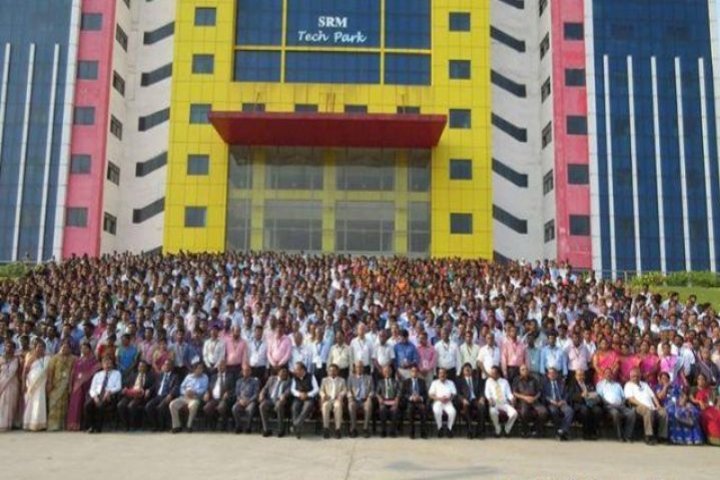

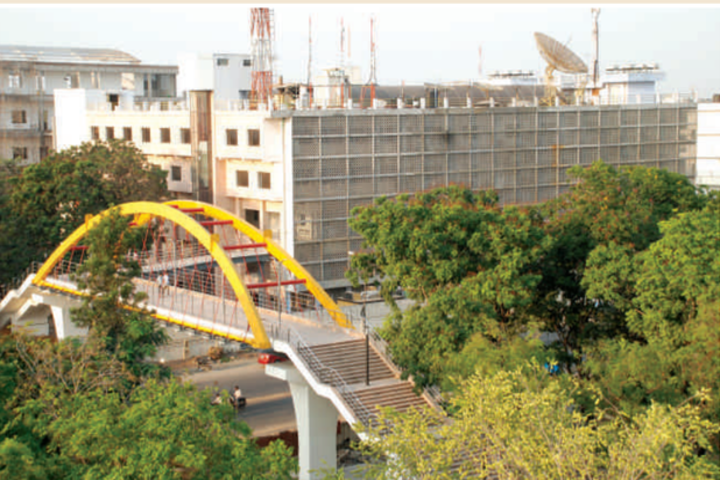
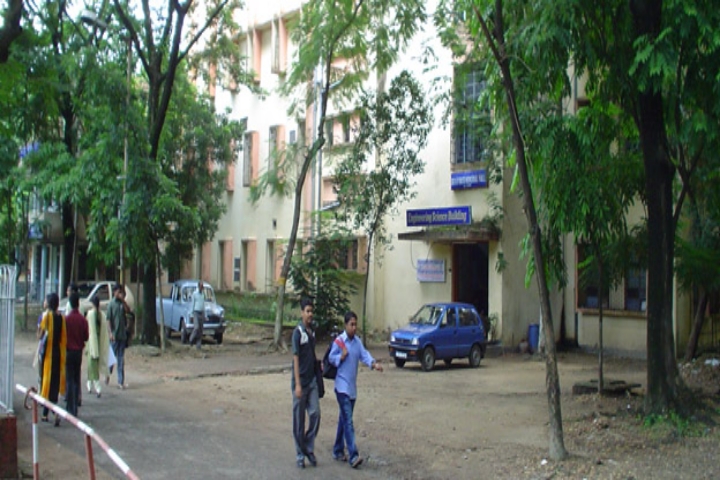
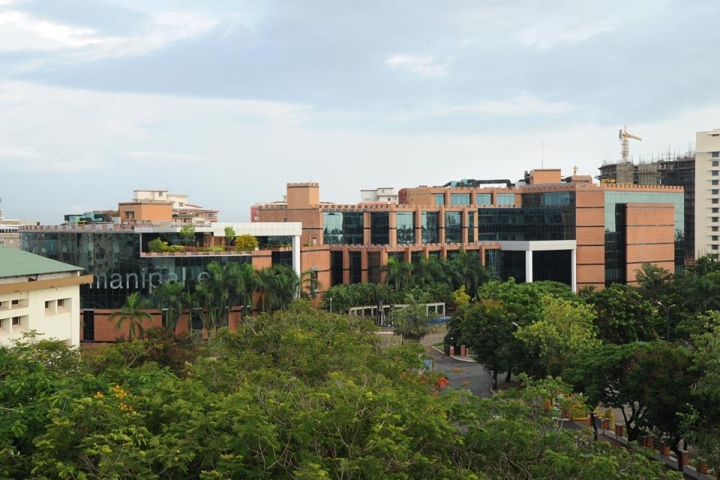
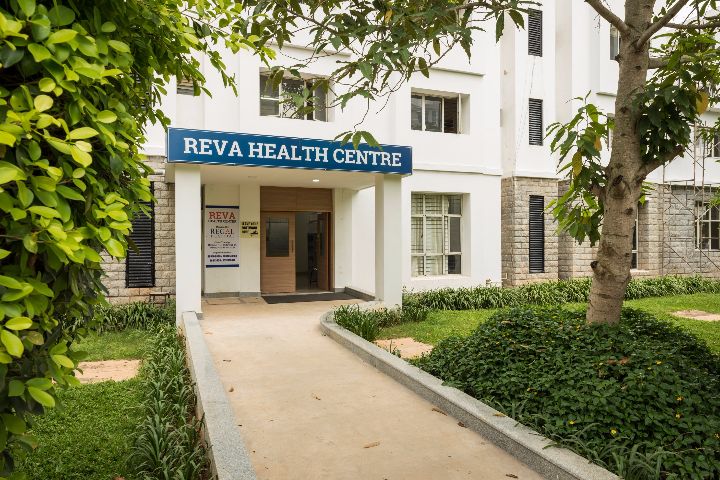
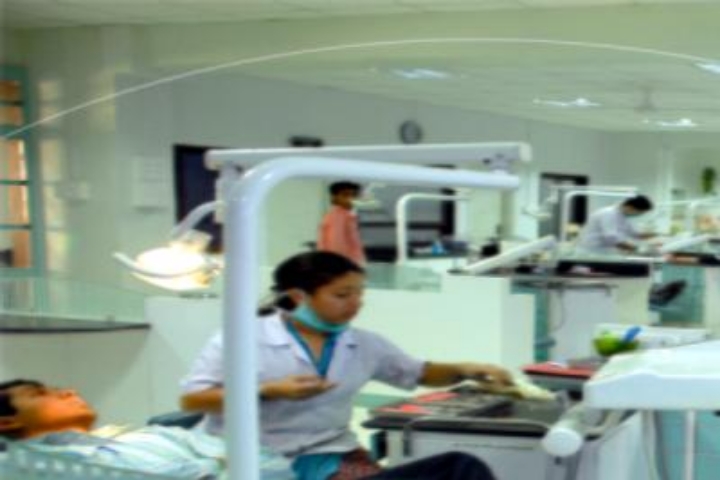

 Answer later
Answer later










